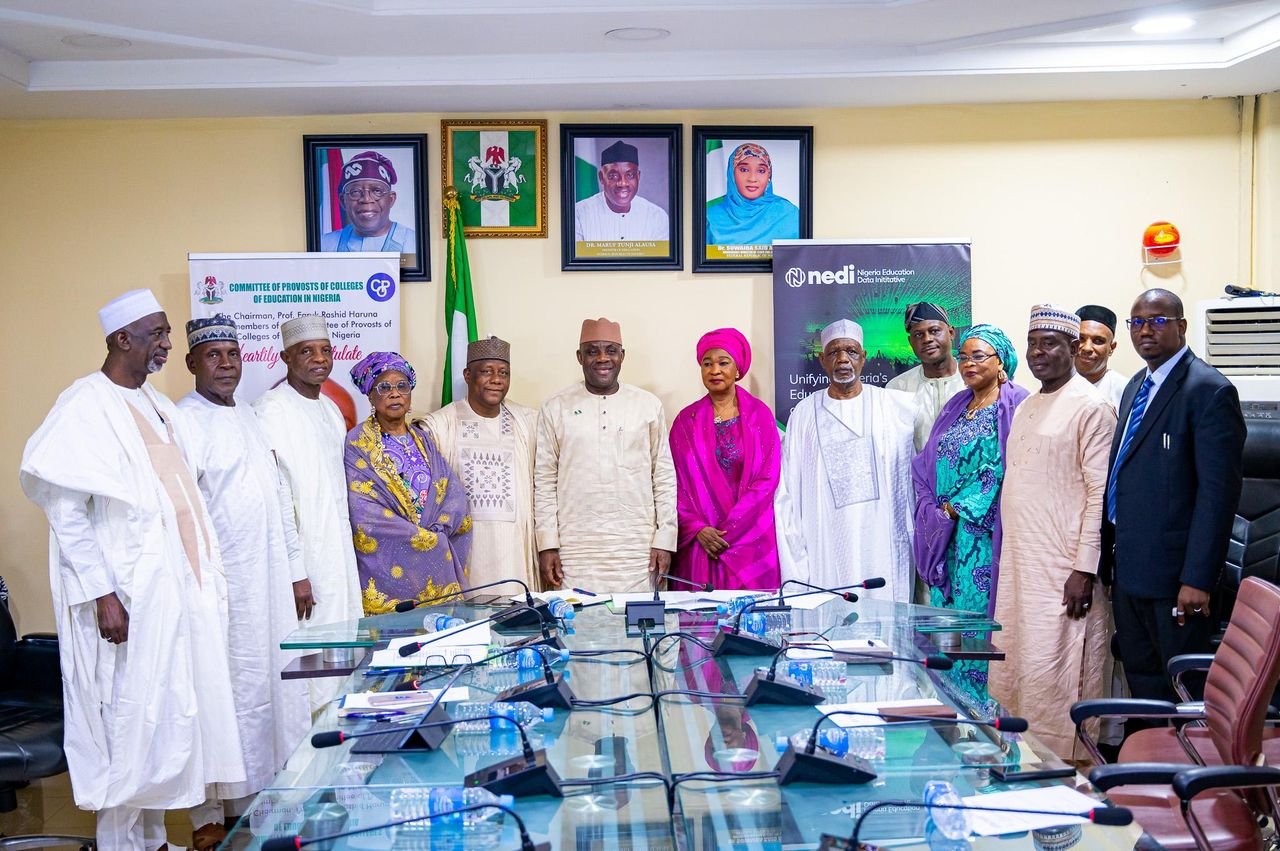
By Uriel Ihotu
The Minister of Education, Dr. Tunji Alausa, welcomed a delegation of key members and stakeholders from the Mubi Sabondale Development Association (SABDA) at his office, as part of efforts to support agricultural reforms and drive sustainable development in Adamawa State.
The meeting focused on the Federal Government’s establishment of the Federal University of Agriculture, Mubi, in 2024, and the strategic importance of community involvement in fostering the institution’s growth and agricultural research capabilities.
Dr. Alausa reiterated President Bola Tinubu’s Renewed Hope agenda, emphasizing the Ministry of Education’s commitment to enhancing educational and agricultural synergy. He announced plans to support the creation of a Research Institute for Wheat Production alongside a Wheat and Livestock Farm at the Federal University of Agriculture, Mubi. According to him, the region’s historical ties to wheat and cattle production make it a prime location for advancing research and cultivating the next generation of agricultural experts.
“The establishment of the Research Institute and the Wheat and Livestock Farm is a step towards self-sufficiency in wheat production and a boost for livestock farming. This initiative is aligned with our goals of improving food security and empowering local farmers,” Dr. Alausa stated during the meeting.
He also expressed appreciation to the SABDA delegation for their commitment and partnership, describing the visit as a testament to the community’s dedication to education and agricultural advancement.
Notable members of the SABDA delegation included the Chairman of the Board of Trustees, Alhaji Sali Isah Bello, CFR; former Minister of Women Affairs, Hajiya Zainab Mena; Professor Ladi Hamalai; and the Association’s Secretary General, Dr. Umar, who also serves as the Director of General Services at the Federal Ministry of Health and Social Welfare.
The partnership between the Ministry of Education and the Mubi community is expected to drive agricultural research, boost local food production, and contribute to national food security, while providing students with hands-on learning opportunities in modern farming techniques.








